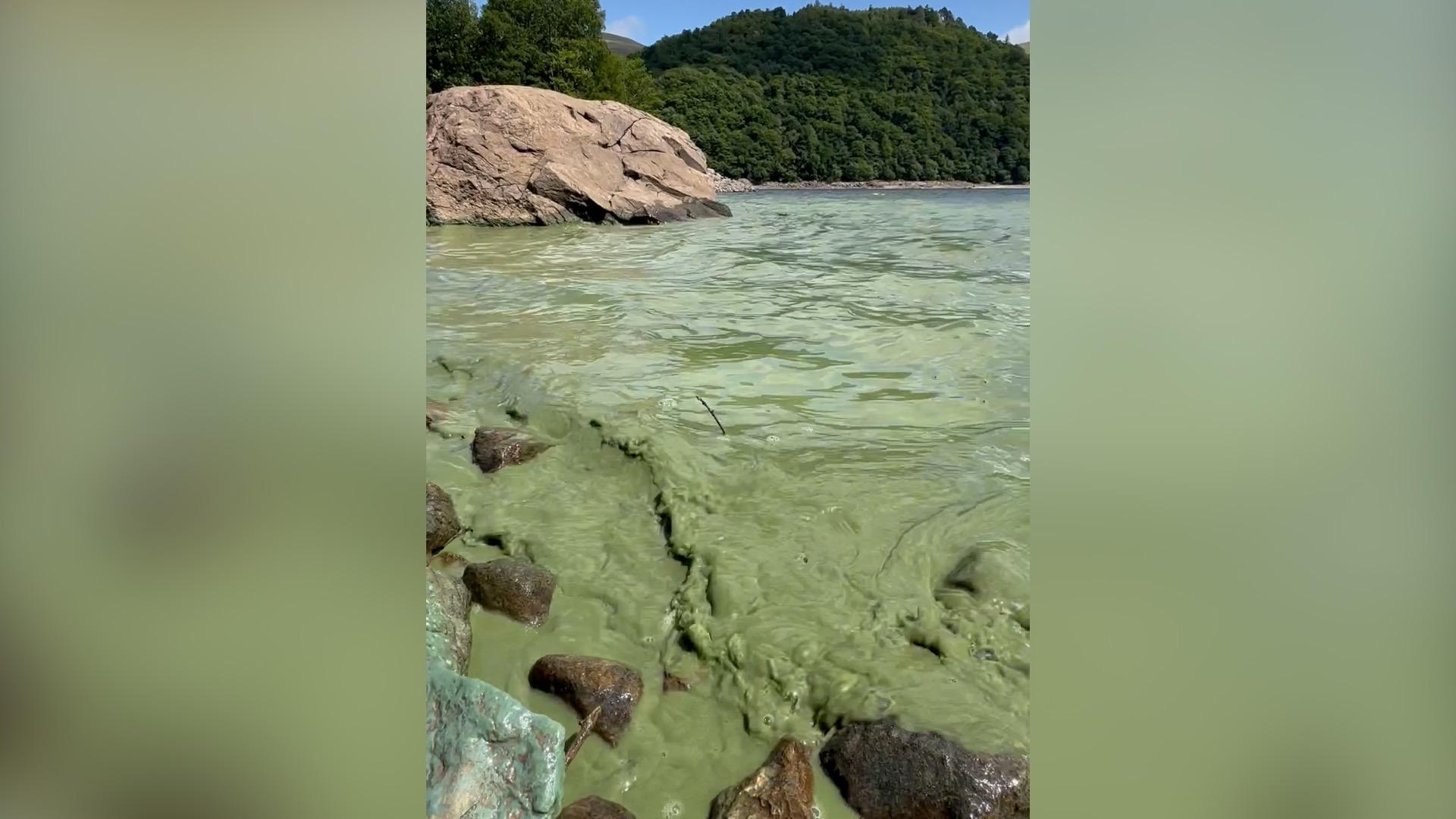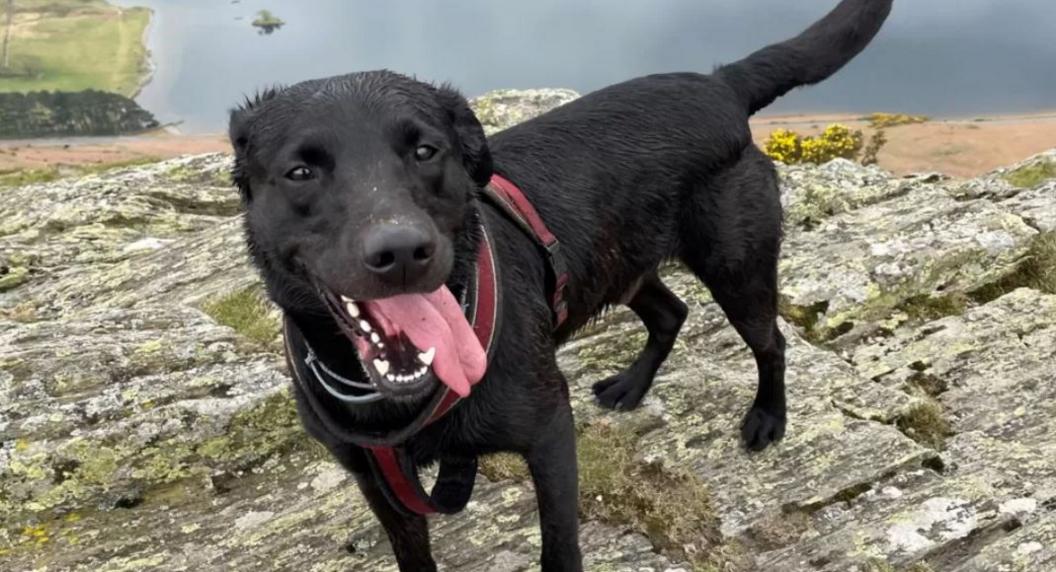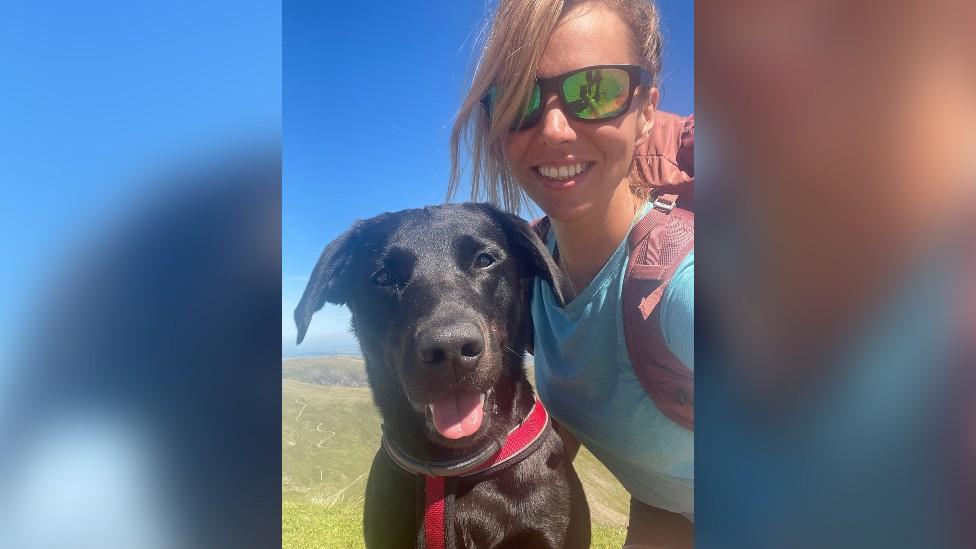Thirlmere: Blue-green algae found at reservoir

Blue-green algae has been confirmed at Thirlmere reservoir in the Lake District
At a glance
Potentially toxic blue-green algae is confirmed at Thirlmere reservoir
Environment Agency urges visitors to keep pets and children away from the water
Toxins can be lethal to animals and make humans sick
Landowners have been urged to put up warning signs
- Published
Visitors to a reservoir in Cumbria are being warned to keep children and pets away after blue-green algae was confirmed in the water.
The Environment Agency said samples were taken from Thirlmere in Allerdale on 14 July after visitors reported the water "looking like green paint".
Rose Gare-Simmons said she had to take her labrador retriever Blisco, to the vet after it went in the water after a walk.
The agency said the algae can be toxic and warned visitors to stay out of the water.

Blisco the labrador had to be taken to a vet after paddling in the water
Ms Gare-Simmons said her pet had to be given injections to induce vomiting, but had not suffered any further ill effects after its paddle in the Lake District water.
Blue-green algae occurs naturally in bodies of freshwater, but some kinds can be toxic to humans and lethal to animals.
During a bloom, the water becomes less clear and may look green, blue-green or greenish-brown.
Scums can form during calm weather when several bloom-forming species rise to the surface. This can look like paint, mousse or small clumps.
'Toxins can kill'
A spokesperson for the Environment Agency said: "Cyanobacteria or ‘blue-green algae’, a type of blooming algae, can produce toxins.
"These toxins can kill wild animals, livestock and pets.
"They can also harm people, producing rashes after skin contact and illnesses if swallowed.
“We have informed the landowners and other statutory bodies so that action can be taken to put up signs to alert the public."
The spokesperson added that members of the public can report sightings on a hotline on 0800 807060.
Follow BBC North East & Cumbria on Twitter, external, Facebook, external and Instagram, external. Send your story ideas to northeastandcumbria@bbc.co.uk, external.
Related topics
Related internet links
- Published14 July 2023
